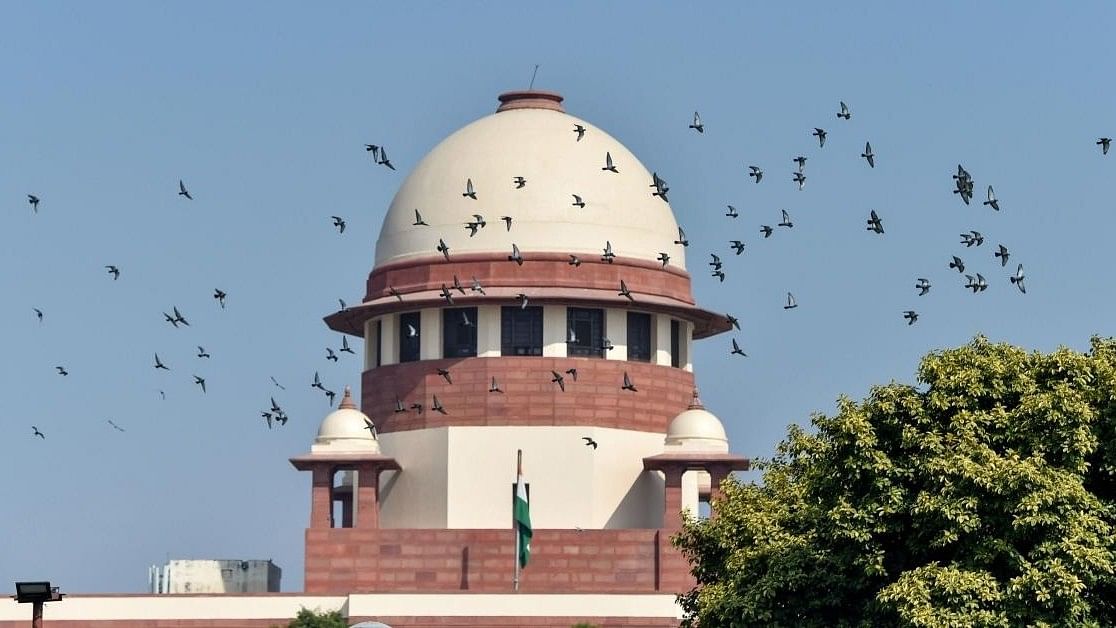
Supreme Court of India
Credit: PTI File Photo
The Supreme Court has refused to consider a plea questioning Union Cabinet's decision of September 15, 2021 providing huge relief to Telecom companies with regard to Adjusted Gross Revenue to the tune of over Rs one lakh crore, considering the big role played by them after Covid-19 pandemic.
A bench of Justices B V Nagarathna and Ujjal Bhuyan said any interference by the court in matters of policy and decision-making would not only create uncertainty in implementation but also jeopardise the policy itself.
The bench said it would not be justified on its part to interfere with a well calibrated decision of the Cabinet solely on the ground that the Supreme Court had earlier passed certain orders on September 1, 2020 on recovery of Adjusted Gross Revenue.
The court said it may appear in a first blush that the Cabinet decision to initiate structural and procedural reforms and provide relief measures for the TSPs are contrary to the directions issued by this court.
It would have been more appropriate for the central government to have filed an application in this regard, the bench said.
"But what is to be borne in mind is emerging situations in light of the Covid-19 pandemic that engulfed the world including India in the years 2020-2021 and the lifestyle of the people drastically changing on account of the precautions and preventive measures that had to be taken in order to save themselves from being afflicted by the pandemic which resulted not only in deaths but also post Covid-19 disabilities and ill health," the bench said.
The court further said in the backdrop of the Covid-19 challenges, with huge surge in data consumption, online education, work from home, inter-personal connect through social media, virtual meetings, etc. reform measures were found necessary to boost the proliferation and penetration of broadband and telecom connectivity.
"In order to provide competition and consumer choice and for inclusive development and bringing the marginalised areas into the mainstream and universal broadband access to connect the unconnected, nine structural reforms and five procedural reforms plus relief measures for the telecom service providers were provided," it noted.
The court dismissed a petition filed by Anshul Gupta seeking implementation of the Supreme Court's judgement of September 1, 2020.
He claimed decision taken by the Union Cabinet vis-a-vis the telecom sector is an instance of clear interference in the payment schedule decided by this court and is directly benefiting the defaulters, which is discriminatory against private individuals and the common man and is in favour of the "super rich".
"These are all matters of policy and decision making which is on the basis of experts’ opinion and on emerging situations and exigencies, to be made in the interest of the welfare of the people of India having serious technical and financial implications and, therefore, have to be in public interest. Hence, we do not think such Cabinet decisions could be lightly interfered with by a court of law in the absence of there being any particulars or materials brought to the notice of the court assailing the Cabinet decisions, as being unconstitutional or arbitrary in nature or contrary to law," the bench said.
The court said after the pandemic, the people depended heavily on the telecom sector as schools and educational institutions, and offices -- private and government -- and courts, all were run on virtual mode, with huge investments for establishment and expansion of the infrastructure in view of a heavy surge of online facilities.
